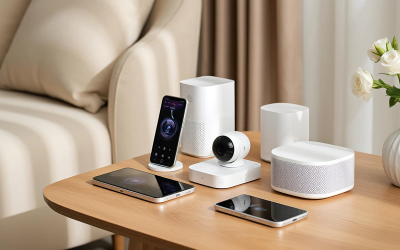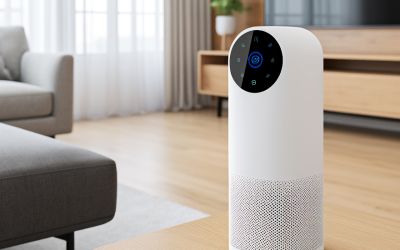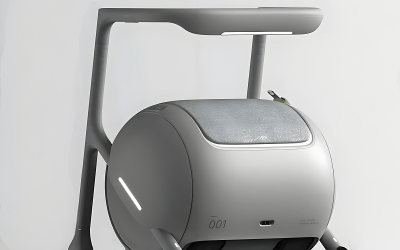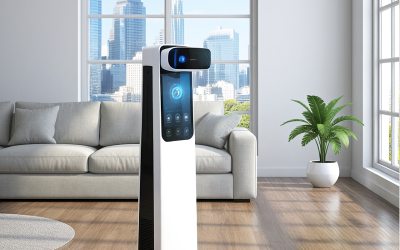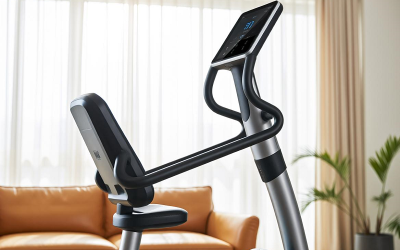The Paradox of Existence in the Digital Age: When Smart Living Becomes the New Folly
 Smart Home
Smart Home
At dawn, your smart alarm gently rouses you based on your sleep cycle; the coffee machine automatically brews your usual Americano; before leaving, your smart speaker reminds you of today’s weather and schedule; on the subway, an app plans the optimal route for you; in the office, a voice assistant handles your emails and meetings—this is the “smart life” modern people take pride in. We live in an era meticulously calculated by algorithms, precisely mapped by data, and thoughtfully serviced by intelligent devices, seemingly enjoying unprecedented convenience and efficiency. Yet beneath this glossy digital veneer, a new kind of folly is quietly taking root. As we delegate the right to think to machines, entrust judgment to algorithms, and surrender the rhythm of life to technology, are we undergoing a collective intellectual regression?
The first paradox of smart living is that it promises to liberate our time but enslaves us to efficiency. The French philosopher Paul Virilio warned of the “violence of speed” brought by technological progress, a prophecy that has been eerily fulfilled today. Every minute we save is immediately filled with more tasks; every convenience we gain is transformed into a demand for higher productivity. Smart devices constantly urge us to “optimize” our lives: sleep must be optimized, diet must be optimized, exercise must be optimized—even leisure must be optimized. The phenomenon of “self-exploitation” described by the German philosopher Byung-Chul Han in The Burnout Society reaches its zenith in the age of smart living—we are both the exploiters and the exploited, willingly submitting ourselves to an unrelenting efficiency machine. When a white-collar worker interrupts deep thought because of a smartwatch’s “stand-up reminder,” or when a student grows anxious over a study app’s “productivity statistics,” we must ask: Is this truly intelligent living, or just digitized Taylorism?
More insidious is the atrophy of cognitive abilities. The ancient Greek philosopher Aristotle regarded “contemplation” as humanity’s highest activity, yet in an age of omnipresent algorithmic recommendations, this capacity is rapidly diminishing. Navigation systems eliminate the need to remember routes and spatial relationships; search engines erode our motivation to accumulate systematic knowledge; social media algorithms tailor echo chambers for us, depriving us of exposure to diverse perspectives. Neuroscientific research shows that prolonged reliance on GPS navigation leads to hippocampal atrophy—the very brain region first damaged in Alzheimer’s patients. Like Prometheus stealing fire, we have seized the spark of technology but unwittingly surrendered our most precious cognitive faculties. When a professor notices students can no longer think independently without Wikipedia, or an editor observes writers increasingly relying on AI-generated content, what we witness is not the growth of wisdom but the slow suicide of uniquely human intellectual capacities.
Smart living has also impoverished emotional experience. The French thinker Rousseau once said, “Man is born free, and everywhere he is in chains.” In the digital age, these chains are technologically mediated emotions. We express feelings through emojis, maintain relationships through likes, and seek partners through algorithmic matching. Psychologist Sherry Turkle’s description of “alone together” in Alone Together has become ubiquitous—people physically gather in the same room yet remain immersed in their digital worlds. More troubling is that as smart devices monitor babies’ cries, analyze partners’ moods, and even simulate human conversation, we are losing our most primal ability to interpret emotions. A study of college students found that those overly reliant on digital communication showed significantly reduced ability to read micro-expressions in face-to-face interactions. We have invented unprecedented ways to connect, yet created deeper loneliness; we have crafted abundant emotional substitutes, yet lost authentic emotional capacity. This paradox brings to mind the warning of German philosopher Martin Heidegger: Technology is not merely a tool—it reshapes our relationship with the world.
Confronted with these paradoxes of smart living, what we need is not Luddite rejection of technology, but a rethinking of the relationship between humans and machines. Faced with the “new technology” of writing, Socrates expressed concern that it would weaken memory, yet he also acknowledged that the key lay in how it was used. Similarly, today we need a philosophy of conscious technological use: preserving spaces of thought ungoverned by algorithms, cultivating cognitive abilities independent of devices, and cherishing genuine interactions unmediated by technology. The Italian novelist Italo Calvino’s concept of “lightness” in Six Memos for the Next Millennium may offer guidance—technology should assist life as lightly as a feather, not weigh it down like shackles.
The true wisdom of smart living may lie in knowing when to use technology and when to set it aside. Maintaining independent thought amid digital deluges, defending the value of contemplation amidst efficiency worship, nurturing authentic emotions within virtual connections—this is the genuinely intelligent life in the technological age. Otherwise, the “smart life” we pride ourselves on may ultimately become one of the greatest follies in human civilization.
